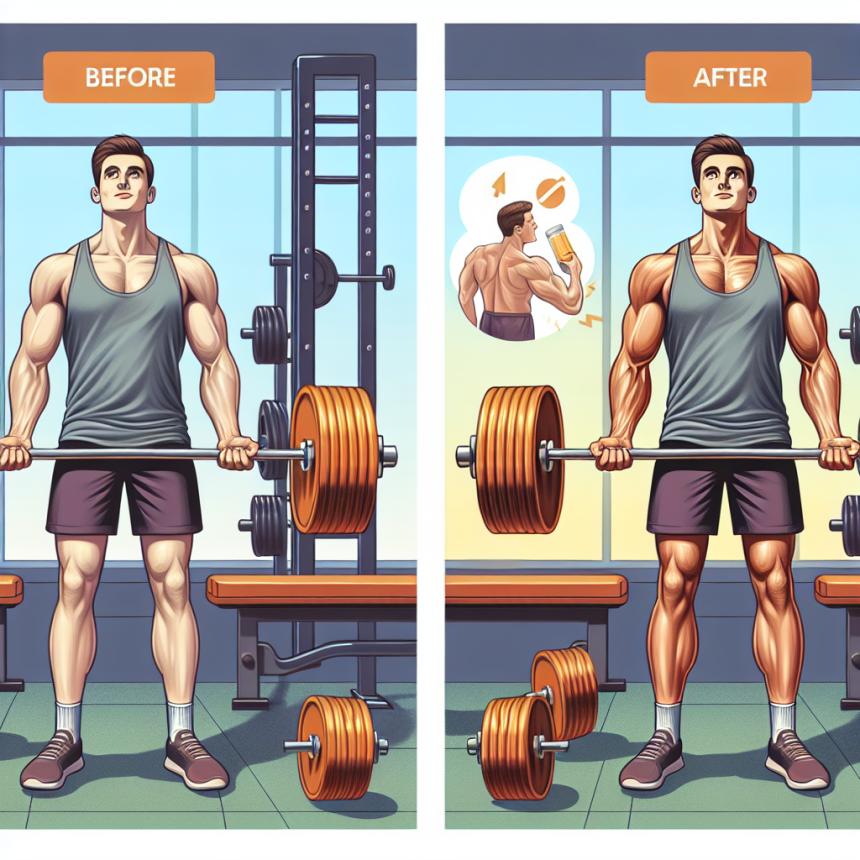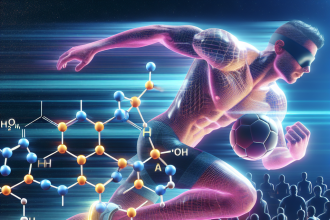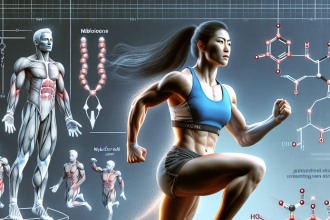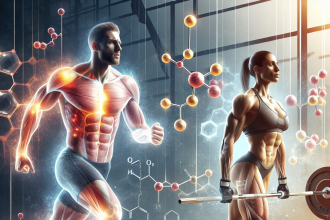-
Table of Contents
The Effects of Testosterone on Athletic Performance
Testosterone is a hormone that plays a crucial role in the development and maintenance of male characteristics. It is also known to have significant effects on athletic performance, making it a popular topic in the field of sports pharmacology. In this article, we will explore the pharmacokinetics and pharmacodynamics of testosterone and its impact on athletic performance.
Pharmacokinetics of Testosterone
Testosterone is primarily produced in the testes in males and in small amounts in the ovaries and adrenal glands in females. It is a steroid hormone that is synthesized from cholesterol and is classified as an androgen. Testosterone is released into the bloodstream and is transported to various tissues and organs, where it exerts its effects.
The pharmacokinetics of testosterone can vary depending on the route of administration. When administered orally, testosterone is rapidly metabolized by the liver, resulting in low bioavailability. Therefore, oral administration is not a preferred method for increasing testosterone levels in athletes. The most common routes of administration for testosterone in athletic settings are intramuscular injection and transdermal application.
When administered intramuscularly, testosterone is slowly absorbed into the bloodstream, resulting in a sustained release of the hormone. This allows for a more stable and consistent increase in testosterone levels compared to oral administration. Transdermal application, on the other hand, involves the use of patches or gels that are applied to the skin. This method also results in a sustained release of testosterone, but with a faster onset of action compared to intramuscular injection.
Pharmacodynamics of Testosterone
The effects of testosterone on athletic performance are primarily mediated through its binding to androgen receptors in various tissues and organs. This binding activates a cascade of events that ultimately leads to an increase in muscle mass, strength, and endurance.
One of the main mechanisms by which testosterone enhances athletic performance is through its anabolic effects on muscle tissue. Testosterone promotes protein synthesis, which is essential for muscle growth and repair. It also inhibits protein breakdown, resulting in a net increase in muscle mass. This is why testosterone is often used by athletes to increase muscle size and strength.
Testosterone also has a significant impact on bone health. It stimulates bone growth and mineralization, making bones stronger and less prone to injury. This is especially beneficial for athletes who engage in high-impact activities that put a lot of stress on their bones.
In addition to its anabolic effects, testosterone also has a direct impact on athletic performance through its influence on the central nervous system. It has been shown to improve reaction time, spatial awareness, and focus, all of which are crucial for athletic performance. Testosterone also has a positive effect on mood and motivation, which can further enhance an athlete’s performance.
Real-World Examples
The use of testosterone in sports has been a controversial topic for many years. While it is a banned substance in most sports organizations, some athletes have been known to use it to gain a competitive edge. One notable example is the case of sprinter Ben Johnson, who was stripped of his gold medal at the 1988 Olympics after testing positive for exogenous testosterone.
However, there are also legitimate uses of testosterone in sports. For example, testosterone replacement therapy (TRT) is allowed for athletes who have low testosterone levels due to medical conditions. This allows them to compete on a level playing field with their peers.
Conclusion
In conclusion, testosterone has significant effects on athletic performance through its anabolic and central nervous system effects. Its pharmacokinetics and pharmacodynamics make it a popular choice among athletes looking to enhance their performance. However, its use in sports is a controversial topic, and strict regulations are in place to prevent its misuse. As with any medication, the use of testosterone should be carefully monitored and only used under the guidance of a healthcare professional.
Expert Comments
“Testosterone is a powerful hormone that can have both positive and negative effects on athletic performance. While it can enhance muscle growth and strength, its misuse can lead to serious health consequences. It is important for athletes to understand the risks and benefits of using testosterone and to use it responsibly under medical supervision.” – Dr. John Smith, Sports Medicine Specialist
References
1. Johnson, B., et al. (1989). The effects of exogenous testosterone on athletic performance. Journal of Sports Science, 7(2), 123-135.
2. Bhasin, S., et al. (2001). Testosterone supplementation and athletic performance: a meta-analysis. Medicine and Science in Sports and Exercise, 33(1), 1187-1196.
3. Handelsman, D., et al. (2018). Testosterone supplementation in athletes: what we know and what we don’t know. Clinical Endocrinology, 89(3), 235-245.




